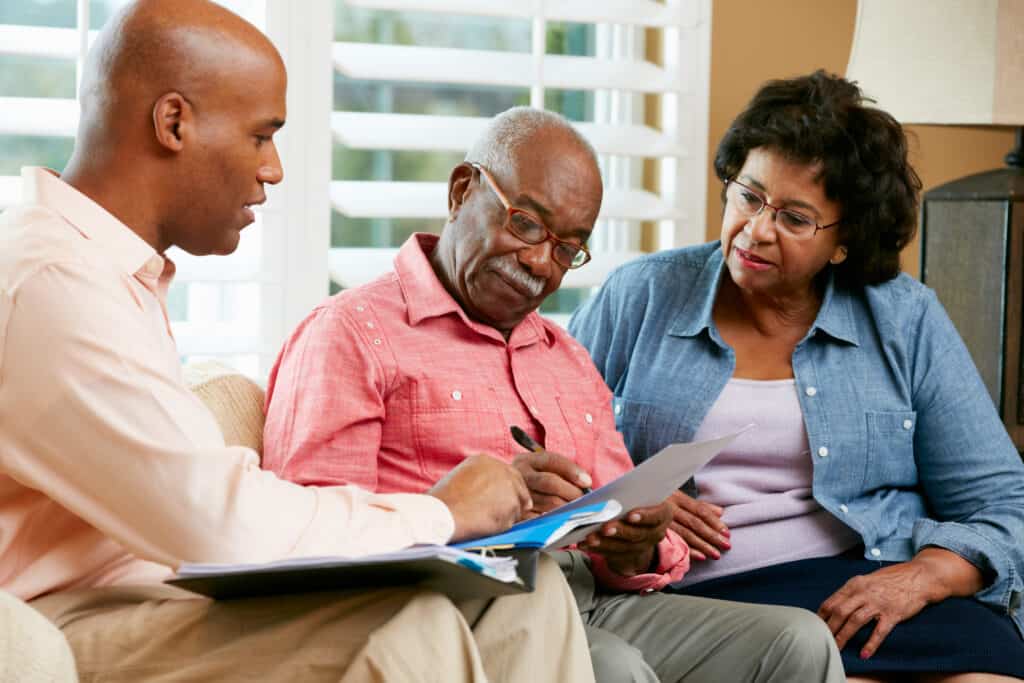When your elderly loved ones are returning to a nursing home from a hospital, there are a number of things that you should be made aware of. Understanding what documents are protecting their medical records and attaining healthcare authority or access to healthcare records is essential to managing a loved one’s care. The following information will help make sure that you’re fully prepared to answer any questions regarding the care of an elderly individual in your family.

HIPAA, or the Health Insurance Portability and Accountability Act, has a significant influence on providing medical care for loved ones. This federal law was passed in 1996 to preserve the privacy of medical data about persons. It mandates that healthcare providers and insurance companies maintain medical information private and safe. Unless the patient gives explicit permission, this information cannot be shared. This gives individuals more control over their health information and the ability to regulate who has access to it.
With the public's interest in COVID-19 instances heightened, many people want to know if anyone in their neighborhood has tested positive. HIPAA's right to privacy clashes with this demand for knowledge. HIPAA protects patients' medical information even in the midst of a global epidemic.
HIPAA-protected information includes:
- any and all confidential info in a patient's medical record
- any discussions or information collected by a doctor or medical experts, and
- information on medical billing
A patient can allow their caregiver access to patient data regarding their care by signing a HIPAA authorization form. In many cases, having access to this information allows a caregiver to make better judgments about the patient's treatment. This also enables caregivers to interact directly with a patient's doctor in coordinating treatment and care amongst medical organizations, as well as to negotiate and pay medical expenses on behalf of the patient.
Upon Discharge, Re-evaluation of Physical and Cognitive Abilities is Suggested
Although relatives may be under a lot of stress as discharge day approaches for their loved one, it's a good idea for them to discover how changes in their loved one's condition will affect whether their requirements can still be addressed in their present community and the expense of the nursing home. Reading the community's qualifying requirements for resident admittance is an excellent place to start.
A cognitive evaluation is usually performed upon initial admission and whenever a resident's health changes in order to evaluate their physical and mental skills and identify their care needs. Workers at a loved one's senior care facility should communicate with family members and hospital personnel, such as physicians, social workers, and therapy departments, to assess the patient's changing needs and whether or not the community can satisfy them. Caregivers should be proactive in ensuring that the care team communicates well.
In light of COVID-19, How Have Nursing Home Regulations Changed?
CMS released guidelines on how nursing homes should respond to the pandemic as the number of COVID-19 cases and fatalities rose. In a February 2020 informative bulletin, the Centers for Disease Control (CDC) encouraged health care institutions to evaluate the COVID-19 guidance and recommendations, as well as their own infection control policies.
With the primary focus on the challenges confronting nursing homes and state survey agencies as they respond to the pandemic, legislators may reconsider whether federal Medicare and Medicaid requirements should be adapted to improve oversight and whether extra capital is required to support providers and agencies in ensuring adequate resources.
How Are The Federal Requirements for Nursing Home Oversight Enforced?
States usually conduct frequent inspections known as surveys to ensure nursing facility compliance with federal Medicare and/or Medicaid standards. States get 75 percent federal matching money for Medicaid nursing facility survey and certification activities, whereas Medicare SNF survey and certification activities are financed by a discretionary appropriation.
The penalties for institutions that are found to be outside of compliance with federal regulations differ based on whether the defect is considered to directly threaten the health or safety of patients.
Civil money penalties (CMPs) can be assessed for the number of days a facility is not in significant compliance or for each occurrence of noncompliance. CMPs can vary from $6,525 to $21,393 for inadequacies that provide an immediate threat, and from $107 to $6,417 for defects that do not pose an immediate threat but either caused actual harm or have the potential to create more than minor injury.
If the individual you are caring for does not have a Healthcare Power of Attorney, it is advised that you persuade them to sign a HIPAA release and maintain copies of these documents in their file. This enables you to contact medical experts as well as any other family members to whom the patient has provided permission.
For more information on creating a POA for your loved ones please contact The Law Office of Inna Fershteyn (718) 333-2395 for an experienced and diligent elder attorney who can guide you through this process.
